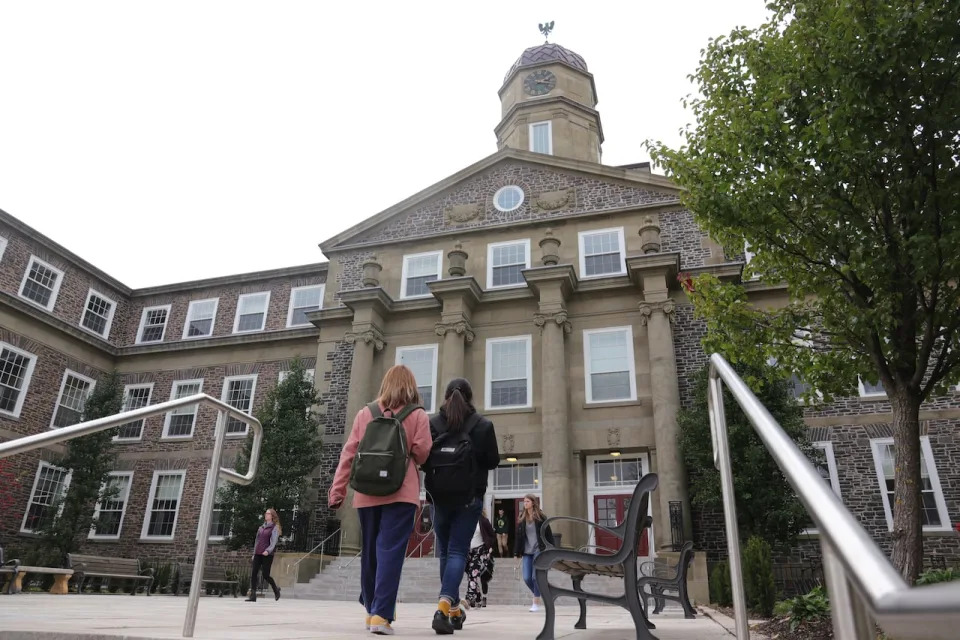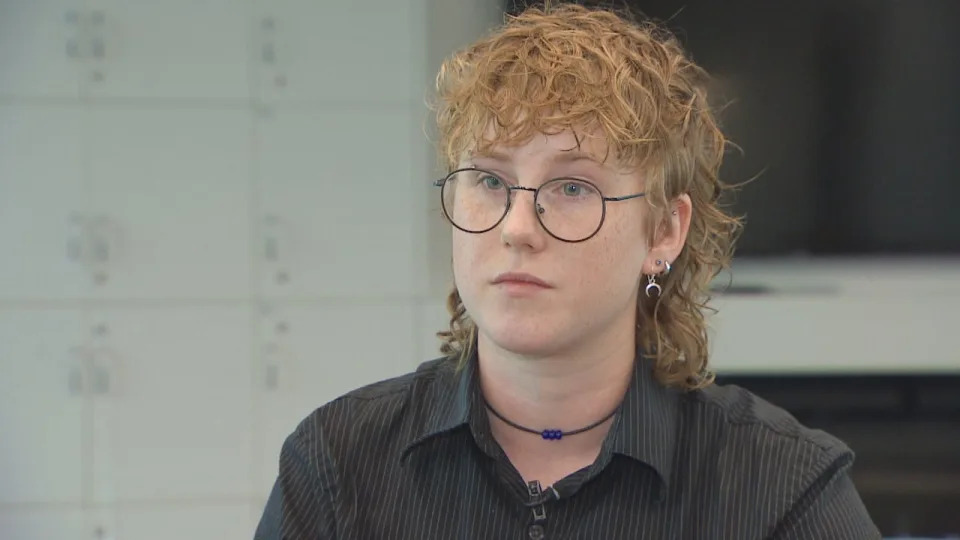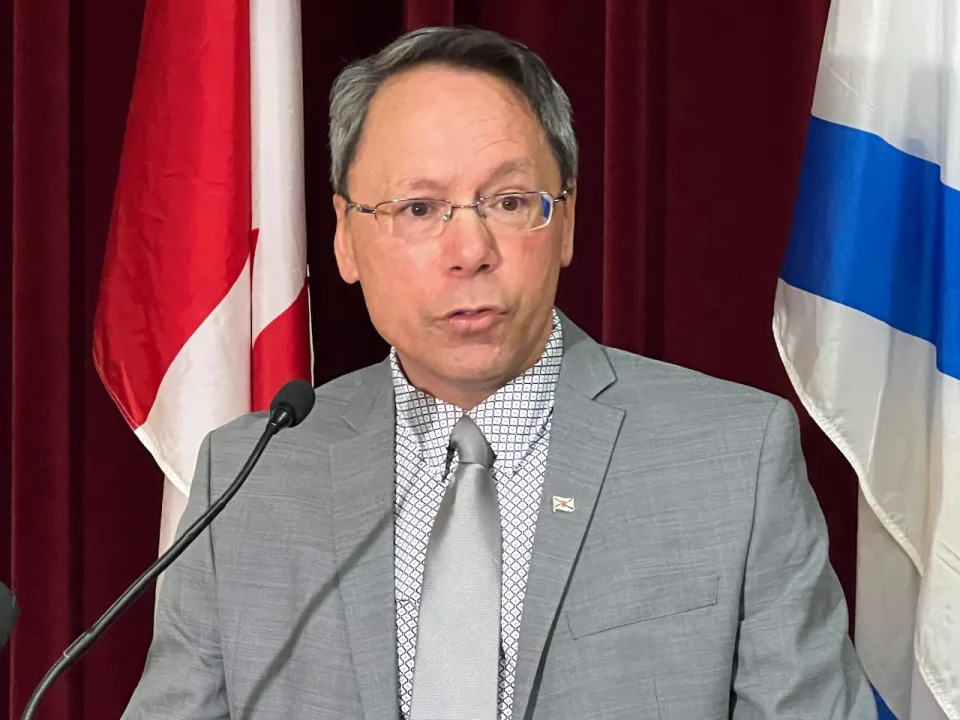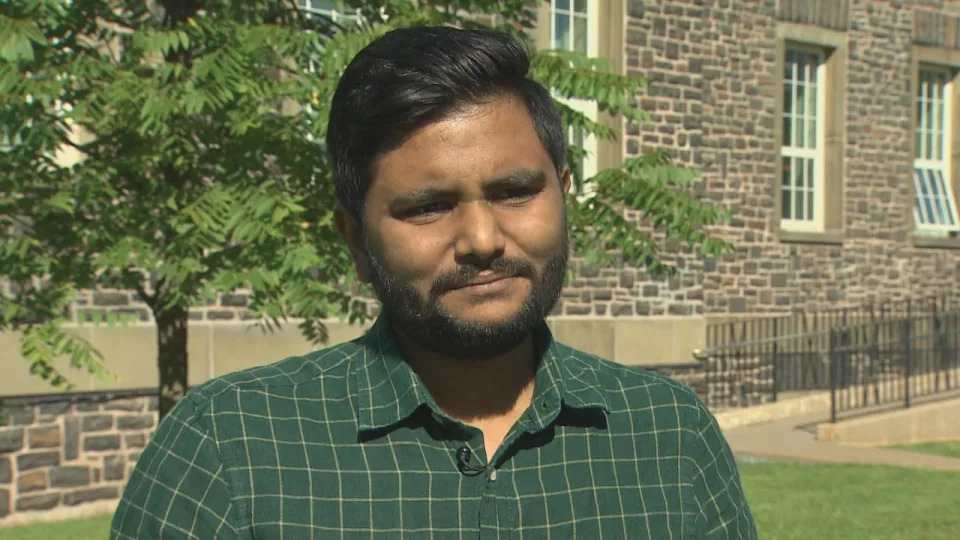University tuition in N.S. well above national average and rising, report finds
CBC
Mon, August 28, 2023

The province is currently renegotiating a memorandum of understanding with its 10 universities, including Dalhousie, that is set to expire in March. (Robert Guertin/CBC - image credit)
Dalhousie Student Union president Mariam Knakriah says her team has heard firsthand from students who have been affected by the rising cost of tuition, a financial blow that's compounded by high rents and rising food prices.
"We have been seeing a lot of students … living with three or four people in the same one-bedroom apartment, students living in their cars," she said.
A recent report by advocacy group Students Nova Scotia found the rising costs of tuition in the province is a major financial strain for young people, with average domestic undergraduate rates sitting at $9,328, a cost that's 36.5 per cent above the national average of $6,834.
The report also says tuition in the province is rising faster than the rest of Canada. Average tuition is up 20 per cent in the last six years, compared to the national average of 3.2 per cent over the same period.
"If we continue on the path that we're on, we don't see any future where Nova Scotia has a competitive tuition in line with the rest of the country and the rest of the provinces," Georgia Saleski, Students Nova Scotia's executive director, said in an interview with CBC News.

Georgia Saleski, executive director of Students Nova Scotia, says rising tuition costs are making post-secondary education in Nova Scotia unattainable, especially for marginalized groups.
Georgia Saleski, executive director of Students Nova Scotia, says rising tuition costs are making post-secondary education in Nova Scotia unattainable, especially for marginalized groups. (Brian McKay/CBC)
Jessie Hudson, a fourth-year environmental science student at Dalhousie University, moved to Nova Scotia from Ontario under the impression that tuition and the cost of living would be affordable.
"Over the last three years, it's been really hard. I've been working two jobs to sort of make sure that I can pay rent, and that's being a full-time student," she said. "And I don't have the worst of it."
This year Dalhousie University, the province's largest school with nearly 20,000 students, increased domestic tuition by three per cent, "the same amount it has increased annually for more a decade now," its operating budget stated. A number of other universities in Nova Scotia have done the same.
More than 40 per cent of the university's revenues come from the provincial government. When Dalhousie's board of governors passed the university's annual budget this spring, it said tuition hikes were "necessary given the gap between rising costs and operating funding."
"It also reflects the core budget challenge the university faces annually: that operating costs rise at a faster rate than government funding, which creates a gap that must be addressed each year by increasing revenue (predominantly through tuition fees, which make up the biggest source of revenue) and/or by adjusting expenditures," the university said.
Tuition rates for international students went up by 7.5 per cent.
Dalhousie did not provide a representative for an interview on Friday.
MOU negotiations
Students Nova Scotia released its report amid negotiations for a new memorandum of understanding (MOU) between the province and its 10 universities.
The agreement outlines the terms under which schools will receive public funding. The current MOU expires in March 2024.
In the current deal, the Department of Advanced Education stipulated universities were allowed to raise the price of tuition by no more than three per cent per year and would receive an annual operating grant increase of at least one per cent.
CBC News reached out to the Department of Advanced Education for an interview but it declined, saying that "it is still too early to comment on the details" of the next MOU.

Brian Wong is Nova Scotia's minister of advanced education.
Brian Wong is Nova Scotia's minister of advanced education. (Mark Crosby/CBC)
"Students are at the centre of everything we do," a spokesperson wrote in an email. "We work with post-secondary institutions to help make sure post-secondary education is more accessible for all students. We also work with students and student groups, like Students Nova Scotia, to ensure our work is rooted in what students really need."
Saleski said Students Nova Scotia is recommending that the provincial government cap tuition increases at one per cent, which had been the case in a previous agreement.
"That tuition cap would hopefully help domestic students and students from within Nova Scotia to want to stay here, to pursue their education at home and to grow the research and development of the province that they grew up in," Saleski said.
She and Knakriah said their organizations and the students they represent are also eager to see the Nova Scotia government's student housing strategy, which was supposed to be released in the spring.
Advocates say international students have been hit the hardest by tuition increases, which are currently not subject to any MOU regulations.
According to Students Nova Scotia's report, international tuition in the province increased by 19.8 per cent over the past five years, from $17,719 to $21,224.
International student Brij Vaghani, who sits on the Dalhousie Student Union council, said he's heard stories of about a half dozen international students sharing a two-bedroom apartment in an effort to cut down on costs. He compared the living conditions to a refugee camp.

Dalhousie computer science student Brij Vaghani says international students need better tuition predictability.
Dalhousie computer science student Brij Vaghani says international students need more predictable tuition. (Paul Poireir/CBC)
"Once we have that image built on that, 'OK, Nova Scotia is not good,' then it's not going to attract more students and it's just going to stop the growth here. And if there are no more new students, then no more new workers as well," he said.
Vaghani and Saleski said they'd like to see year-over-year caps for incoming international cohorts and an ethical standard for recruiting and retaining international students.
MORE STORIES
No comments:
Post a Comment